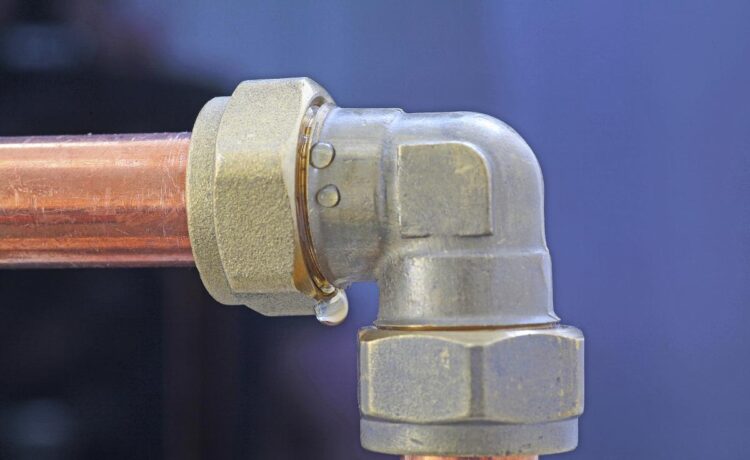A leaking central heating pipe is an incredibly frustrating issue to have within a property, as it affects the entire home. We do not realise how important our central heating system is, until it begins not functioning properly. Unfortunately, central heating pipe leaks are quite common, as our home’s heating systems are used all throughout the day. Whilst water access is essential within our homes, letting us shower, drink and wash dishes, water by nature corrodes and wears down pipes over time, no technology or fixtures are immune to it. When left unchecked, pipe leaks can wreak havoc within our home’s internal structures, causing expensive damage below the surface. Due to the nature of pipe leaks, they can be very difficult to spot, but there are a few tell-tale signs your central heating pipe is leaking.
Signs of a Central Heating Leak
Pipe fittings degrade over time, as the pressure of water flowing through them can cause pipes to move, crack and weaken. There are a few tell-tale signs which can suggest you have a central pipe leak. If you are constantly topping up your boiler’s pressure, or you notice a general reduction in your water pressure, this could suggest you have a leak. If you notice an increase in dampness in your home, in the walls or in corners, this also strongly suggests you have a leak, as water is dripping within walls and under floors. If your leak has been slowly growing over time, or has gone unnoticed for a while, you may also notice an unpleasant smell of stale water and dampness in your home.
What to do When You Discover a Leak
If you suspect you have a central heating leak, you should immediately call a professional to inspect the issue. Leaks only cause more damage and become more expensive to fix the longer they are left unchecked, so you should seek help quickly. When waiting for help to arrive, there are a couple of measures you can take in the interim. Every central heating system will have a pressure relief valve or a safety value, which is a pipe external to your home. Check this pipe for a leak or any drips as it could be the source of the leak. You can also check your header tank, which constantly refills, supplying your central heating system with water as it is needed. If this tank is constantly refilling, this signals your central heating pipe is leaking or functioning poorly. Lastly, you can also monitor your boiler’s pressure gauge, checking what rate of pressure is decreasing. This could give you an indication of the size of the issue, as a boiler constantly needing topped up signals a rather large leak.
Contacting a Professional
After discovering the issue, contact Aspect specialists in central heating leak detection, to quickly treat your central heating leak. Using non-invasive methods, Aspect professionals will be able to find the leak and its source discreetly, with minimal disruption to your home. Before modern detection methods, trades people had to find leaks manually, pulling up carpets and floorboards searching for signs of water and dampness. Now, using technology like thermal imaging cameras, Aspect experts can see the sources of hot and cold within the home’s structure, allowing them to quickly see unusual activity or pipes which have lost heat and are leaking. From here, experts will use borescope cameras or tracer gas, to locate the exact point of the leak. These methods are not only less invasive, they are much more time efficient, meaning you can get back to having a functioning central heating system in no time at all.

